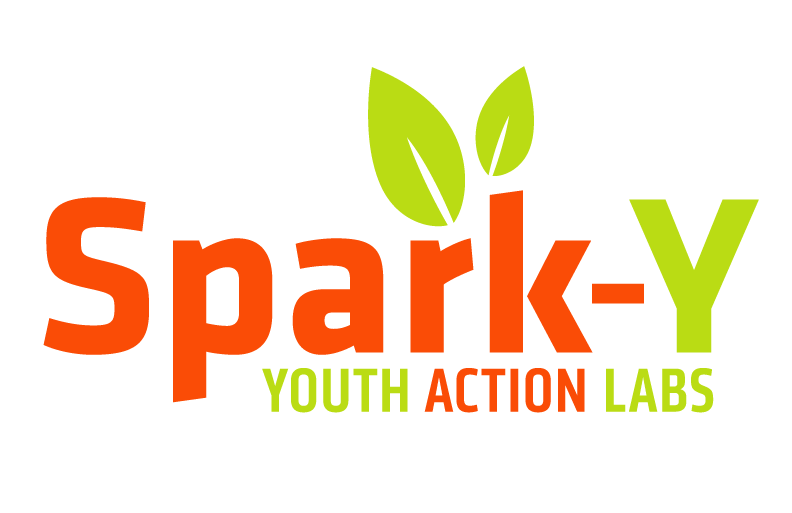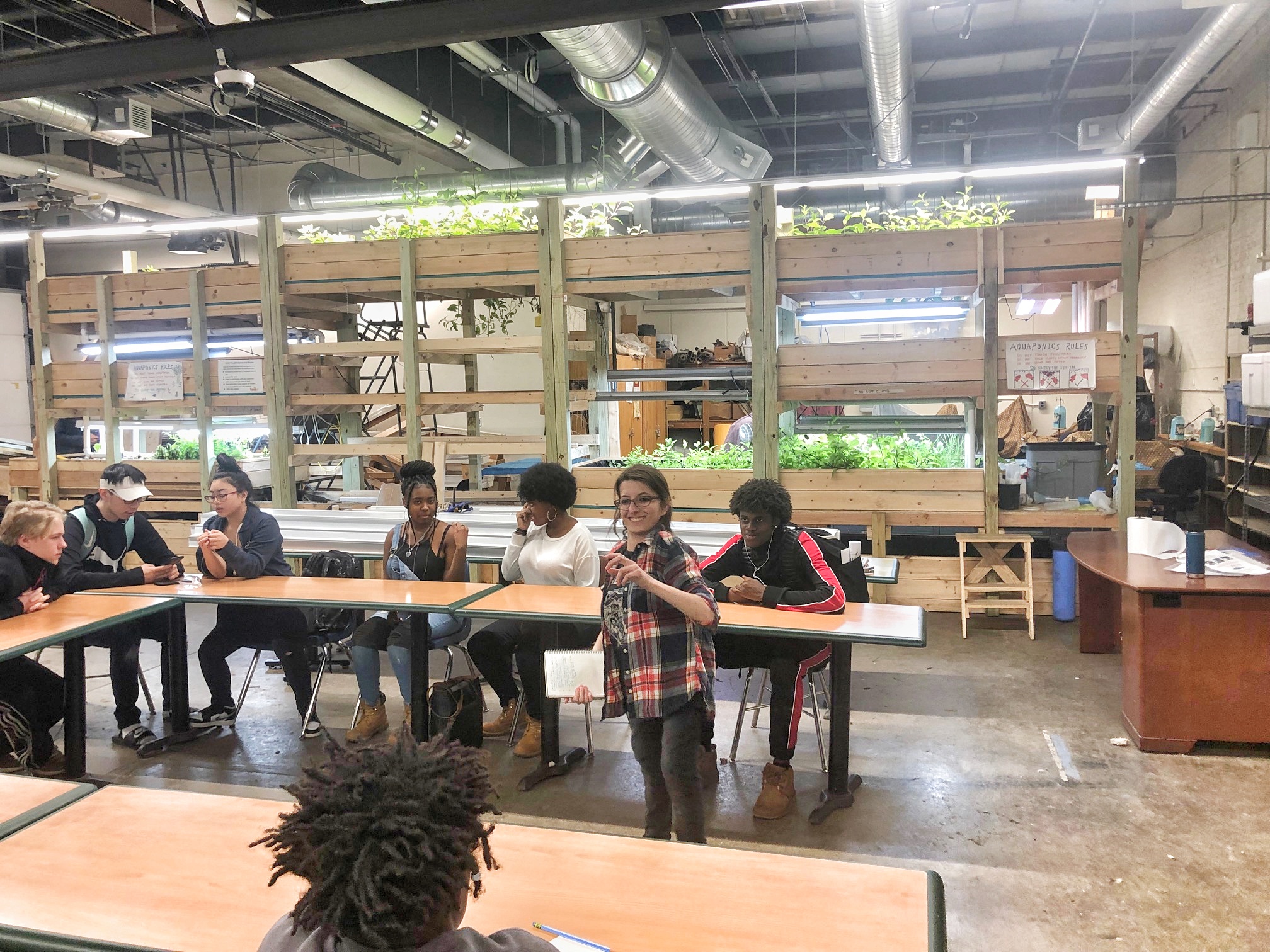The following farewell address was written by
Sarah Pilato, Spark-Y Sustainability Educator.
My job at Spark-Y allows me the privilege of spending a part of every day at Edison High School with many of our LEEF (Leadership, Entrepreneurship, Environment, Future) classes. LEEF was designed to be a pathway that Edison students can follow throughout their high school education that incorporates innovative and hands-on project-based learning. Students involved in this pathway get to explore the real world that exists far outside of their classroom and how they as individuals can have an impact on it.
Sarah Pilato with Edison High School Youth
Since I get to spend so much time with these students throughout the year, I have the opportunity to form very strong relationships with them and the end of the year is a very bittersweet experience. It is especially so for those that are seniors who will be graduating and not returning the following year.
If I am able to leave anything with my graduating seniors to take into their futures, I hope that it is these lessons from our time together:
Embrace life’s tangents
At this point in the year, many of my students have learned that they can very easily get me off on a tangent during class. I make myself and my classroom open to these spontaneous discussions because often times, I find that they happen when students are their most excited and engaged. During a garden planning exercise, a discussion about which crops are able to grow in Minnesota quickly turned into an all-out war over pineapple on pizza (it absolutely does belong, for the record). Another day began with students participating in nutrient testing but eventually ended with a passionate discussion about what the government is doing (or not doing) to regulate various types of pollution and how those students can make more drastic changes.
When my students ask me genuine and thoughtful questions, I am more than happy to share that knowledge with them. These tangent discussions became the space where my students did their best learning. They opened up their minds to new ideas, further cemented relationships with their classmates and teachers, and gained a deep sense of pride and ownership over something that may have been brand new to them.
I hope that my students take from these small classroom experiences, that when life throws an abrupt change of course at you, it may very well just be an opportunity to learn something new, have a new experience, or find a new passion.
Find something you’re passionate about in everything that you do.
I am very much a realist when it comes to my classes. Not every student is going to love every single activity, and I try to be upfront with them about that. My challenge to them in these instances, is to find a way to connect our current adventure to something that you are excited about. A great recent example of this came during our soil health unit from just a few days ago. I’ll be the first to admit that soil health and nutrient testing can come across a lot less glamorous than some of the other topics we get to cover in a year. One particular student couldn’t have cared less about the phosphorus levels in the garden soil but what he did care about was his “pizza garden”. We were able to have a great conversation about his hopes for this garden space - production of enough tomatoes and basil that he could use them in making his own pizza sauce - and how healthy growing plants would be impossible to get without first having healthy soil. Tying this seemingly boring activity back to something that this student already cared about and had taken ownership of, reinvigorated his interest in the soil testing.
I hope that my students take from these tiny challenges that life is worth being excited about. Not everything you do will necessarily be something you are deeply passionate about, but taking even those dull moments and flipping them around can ignite a new understanding or perspective you might not have considered before.
Failure is ahead of you. Don’t be afraid of it.
Failure is a thing that is going to happen to you. I’ve learned this lesson myself many, many times over and every time I learn it, it gets a little less scary. One of my goals for my classroom throughout the year is to create a “fail safe” environment. I want my students to come to class everyday not being afraid to try something new on the chance that it might not work out the way that they want it to, or worse, for fear that they will get a bad grade if it doesn’t.
During a bridge building competition (a stepping stone to our first major building project of the year), 2 of my students were becoming increasingly frustrated when the tactic they were trying kept resulting in broken popsicle sticks before their bridge was even completed. After resetting their minds a bit and making a few adjustments, they were able to improve their bridge’s weight-bearing capabilities. Another student attempted a fish breeding experiment that resulted in exactly 0 offspring being born. Reflecting with some of his classmates, he wrote a really powerful presentation on every possible source of error and has requested to try his experiment again next year, despite not even being enrolled in the class.
I hope that my students take from these experiences that instant success is not the only way to be successful. Failed attempts are opportunities to learn, grow, and persevere your way to a rewarding outcome.
Congratulations to the graduating seniors from the class of 2019! We at Spark-Y are all so proud of you!






